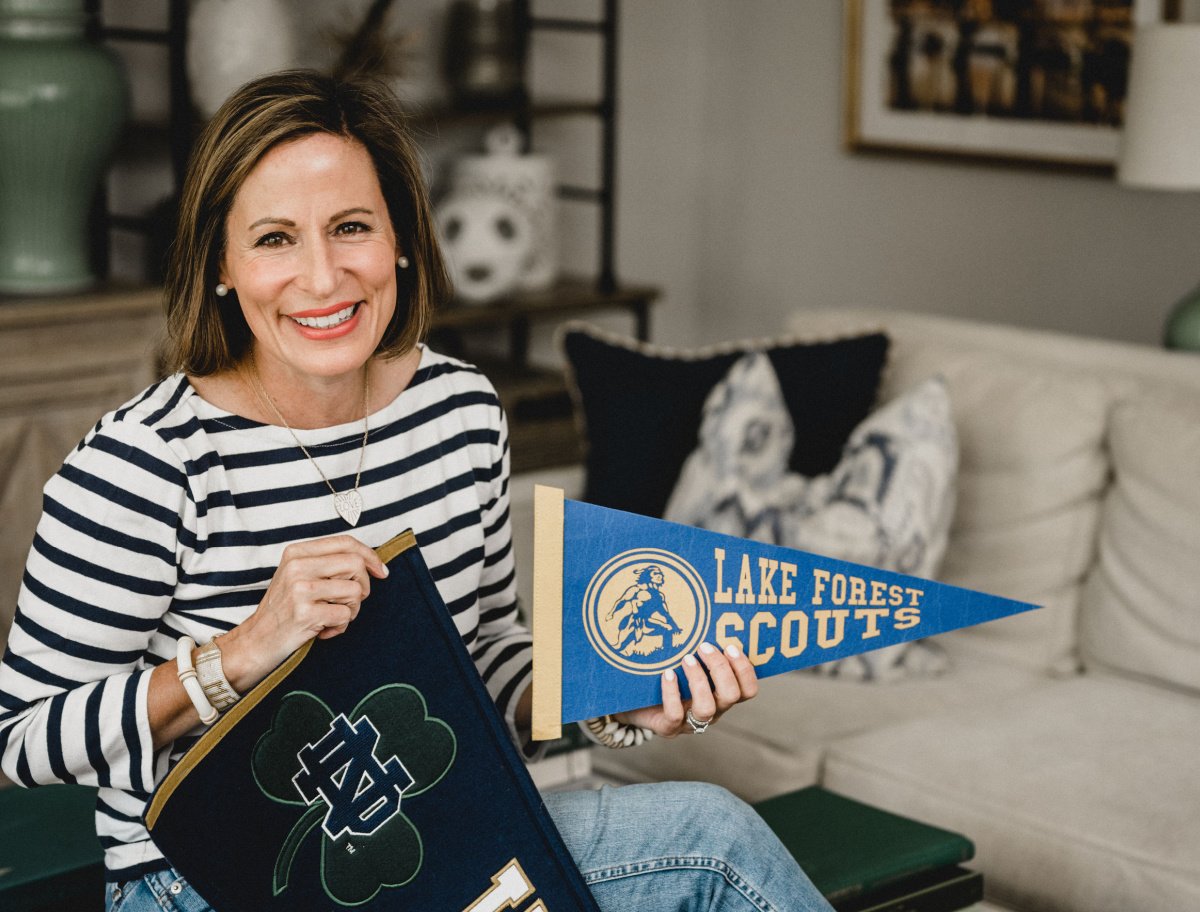
My friend and former colleague Adrienne Fawcett recently interviewed Lake Bluff’s Dr. Michael Peters, an emergency room physician with Northwestern Lake Forest Hospital. He provided a local perspective on Covid-19 that she wrote for LakeBluffStrong.com. LakeBluffStrong is a newly launched website for Lake Bluff residents to visit regarding news related to COVID-19. It’s an incredible resource and worth checking out! But first, here’s her interview with Dr. Peters.
Q. How are you doing?
A: I’m doing well, thank you. The support from my neighbors and other Village residents has been a great encouragement. I’m amazed by how many old friends and my neighbors regularly check to see how I’m doing or if I need help with anything. I think it’s one of the things that makes Lake Bluff such a great place to live.
Q: How do we frame our mindset to be prepared for the month of May? the summer? the next year?
A: I anticipate continued risk of COVID-19 infection throughout the summer and fall.
Q: What advice do you give to your own family members about going out, social distancing, wearing masks?
A: I advise my family, friends, and anyone else who asks to adhere to social distancing. When they have to be around people other than those from their household, they should wear eye protection, mask, not touch their face, and wash their hands frequently.
Q: What can we do or continue to do as a community to help prevent COVID-19?
A: I recommend continued adherence to social distancing unless involved with essential occupations or activities. Strict adherence to eye protection, mask, avoidance of touching your face, and frequent hand washing are essential.
Q: The knowledge about COVID-19 is rapidly evolving. How quickly are you and the hospital able to integrate revised protocols into your ER and hospital?
The rapid, sometimes daily, revisions have been unprecedented during my medical career. Northwestern Medicine, as a major academic medical center, provides us with daily updates allowing rapid incorporation of the latest recommendations to the care we provide our patients.
Q: Can you walk us through a standard shift in the ER right now?
A: The mission of emergency medicine, to provide help for all patients requesting care, has not changed during the COVID-19 pandemic. The biggest change has been the increase in patients with respiratory distress or decompensation of chronic illness due to COVID-19. This has been especially true for the elderly and patients with co-morbidities like diabetes, hypertension, obesity, and immunosuppression. Northwestern Medicine has instituted protections for our patients and staff through screening and proper use of PPE. All staff are checked for fever and screened for COVID-19 symptoms upon entering the hospital. Patients and staff are also required to wear a mask at all times.
Q: What does it look like for people who come into the ER without COVID-19 (i.e. for a broken leg)?
A: Patients presenting to the ER with non-COVID-19 illness and injury are treated with the same standard of care as prior to the pandemic. One major difference is the restriction on visitors except for pediatric patients. This can be very difficult for our patients but is necessary to limit spread of the virus.
Q: Are people avoiding going to the ER for non-COVID-19 issues? And if so, where are they going for medical care instead of the ER?
A: We have seen some incidence of delayed presentation for acute medical conditions due to patient concern about getting COVID-19 in the ER. I encourage people to seek emergency care when it’s needed. This is especially critical for time dependent medical illness like heart attack, stroke, and sepsis.
Q: Is Northwestern treating COVID-19 as droplet or airborne precautions (surgical or N95 mask when just seeing covid patients)?
A: We wear full PPE as defined by the CDC and IDPH when caring for potential or known positive COVID-19 patients. Our patients and all other staff wear a surgical mask as well. As an EMS medical director, I have advised our paramedics to do the same. Full PPE includes head covering, eye protection, N95 mask, gown, and 2 pairs of gloves.
Q: How is the hospital’s PPE supply?
A: There continues to be a national PPE shortage, but Northwestern Medicine Lake Forest Hospital has been very good about providing us with the PPE we need to care for our patients. We do utilize the CDC’s PPE conservation measures for items like face shields, goggles, and masks.
Q: What is happening for people who do not have COVID-19 but need hospital resources for things like cancer, emergency surgery, labor and delivery, etc.?
A: The hospital provides emergency care as it did prior to the COVID-19 pandemic.
Q: Do you or your staff do anything differently after a shift when you go home from the hospital (compared to pre-COVID-19 times)?
A: The hospital provides us with scrubs that are left at the hospital and laundered professionally. We clean and store our reusable PPE items in a paper bag or bucket. I think most of my ER colleagues shower and wash their clothes as soon as they arrive home. Some self quarantine within the home away from their family.
Q: How are you and the staff coping with the added stress of COVID-19?
A: Northwestern Medicine has recognized the unique stressors of caring for patients during the COVID-19 pandemic and has provided many resources for help. I have found discussion with my ER colleagues, the other physicians, nurses, paramedics, patient care techs, pharmacists, and respiratory therapists, to be very helpful.
Q: What’s a good way for those of us on the outside to thank or help healthcare workers?
A: My ER colleagues and I have all found tremendous encouragement from the outpouring of support provided by residents and local businesses. It has been much appreciated during this scary time. I would say to continue to look to others who might need encouragement and help as well. I think of the people who work in public safety, grocery stores, the post office, delivery services, the trades, and small business owners as examples.
Michael Peters, MD, FAEMS, EMS Medical Director, Northwestern Medicine Lake Forest Hospital
A special thank you to LakeBluffStrong.com for this piece.


